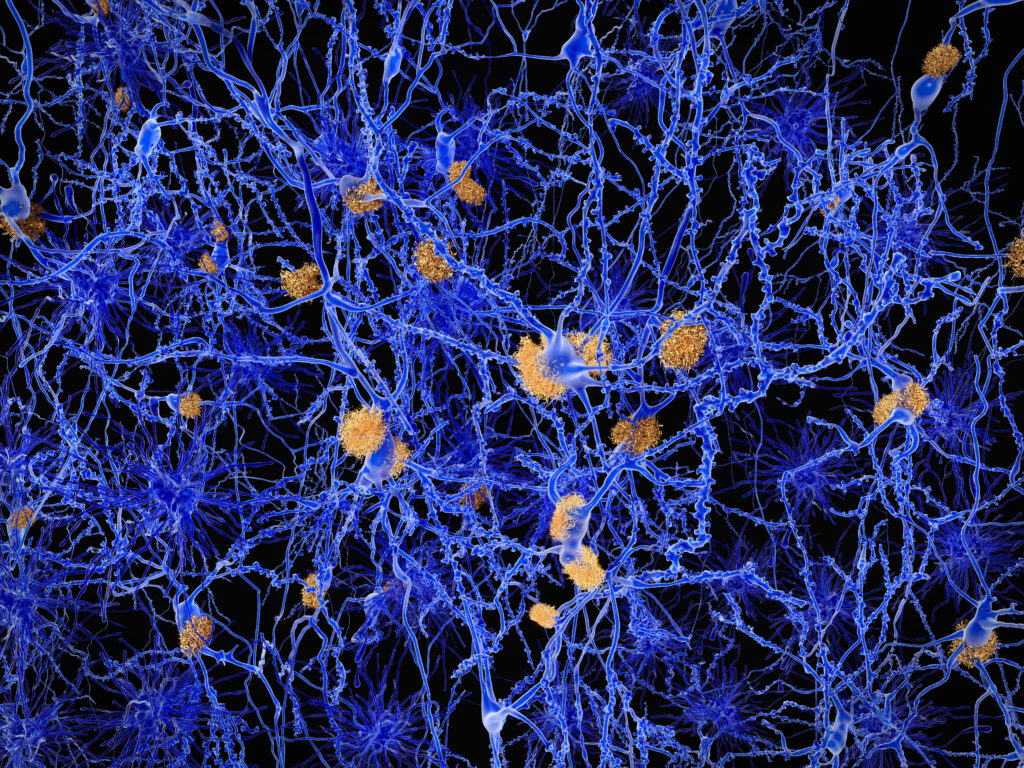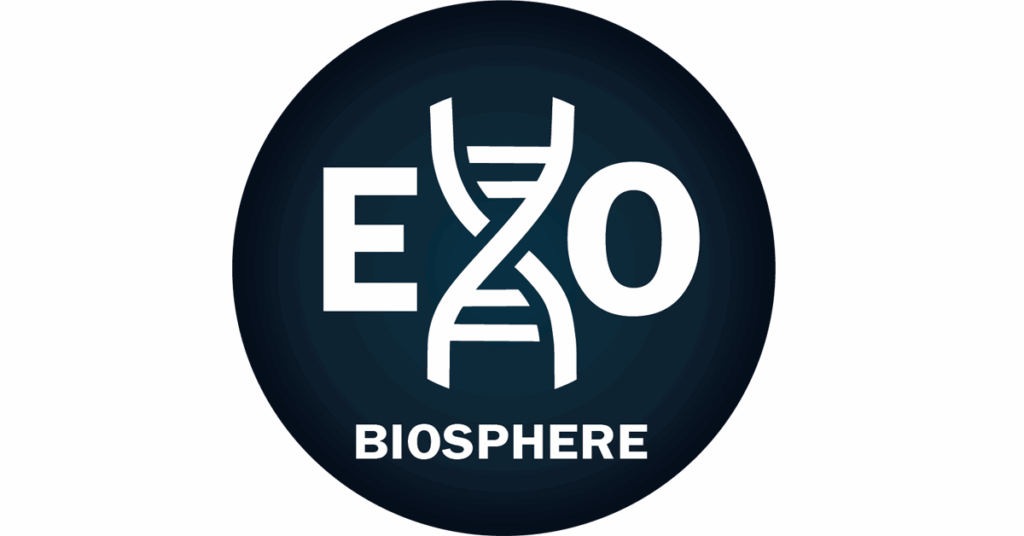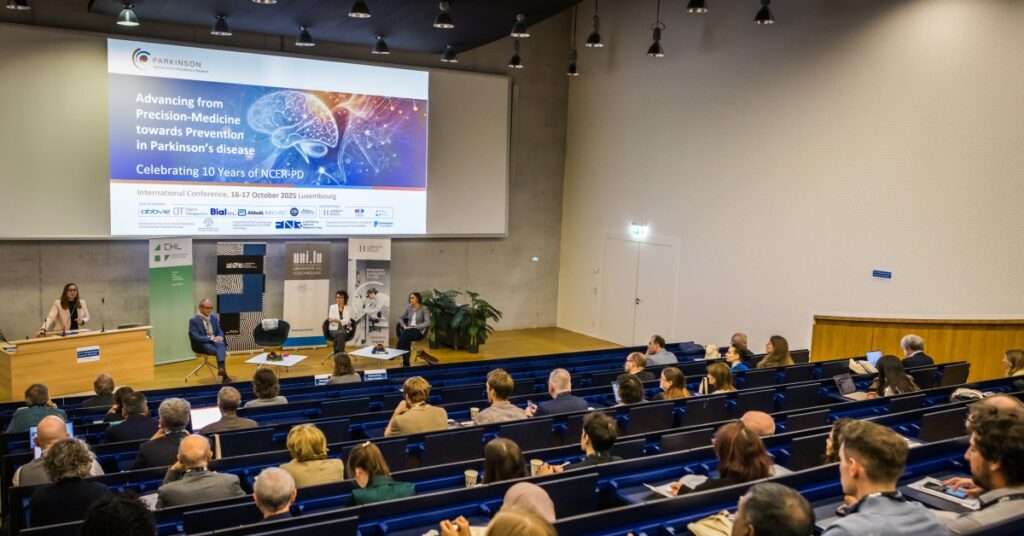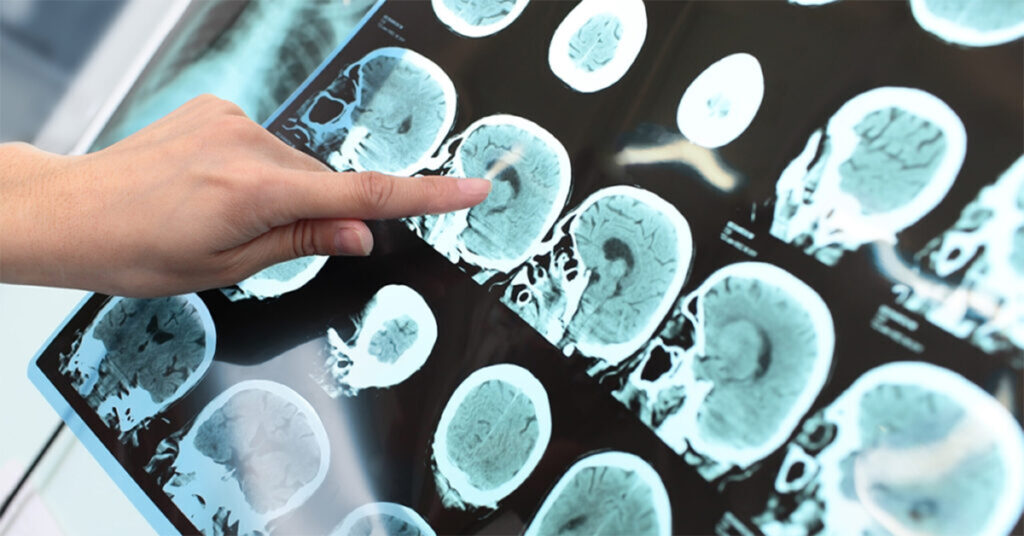News
Luxembourg joins European doctoral training for AI-driven healthcare for Parkinson’s disease

A new European Doctoral training unit (DTU) focused on AI-driven healthcare was launched on the 22 November 2024, aiming to train the next generation of leaders in precision medicine. This initiative, led by Frauenhofer Institute for Algorithms and Scientific Computing (SCAI) in Bonn, Germany and funded by a prestigious Marie Skłodowska-Curie Actions grant from the European Union, brings together prominent institutions from across Europe, with Luxembourg playing a major role. Principal investigators of the Luxembourg Centre for Systems Biomedicine (LCSB) and the Luxembourg Institute of Health (LIH) will be involved in the supervision of 8 of the 14 PhD positions, with the goal to contribute significantly to the development of novel AI strategies for healthcare, particularly in the context of Parkinson’s disease.
Advancing precision medicine through AI
The DTU’s focus on Parkinson’s disease reflects the work accomplished in the last decade within the National Centre for Excellence in Research on Parkinson’s disease (NCER-PD) supported by the FNR PEARL Program Digital Medicine in Luxembourg. By developing and applying advanced AI methods for this rapidly growing neurological disorder, the DTU aims to create precise tools to predict disease progression and offer personalised treatment support. Through their research, students learn how to pave the way for more effective and individualised patient care.
Providing an interdisciplinary curriculum
In addition to the research, the DTU’s curriculum emphasizes the importance of socioeconomic, ethical, and legal considerations in AI-driven healthcare. It fosters direct exchange with patients and healthcare professionals to facilitate integration of AI solutions into healthcare services. Jointly with industry partners, the students will be trained in data security and privacy aspects (General Data Protection Regulation (GDPR) compliance, European Health Data Space, Data Governance Act), and new regulatory procedures (Medical Device regulation – software as a medical device, Health Technology Assessment Regulation Act) – all in the light of the forthcoming European AI Act. Hence, the DTU aims to equip them with the knowledge to navigate the complex regulatory landscape of medical data science.
Interdisciplinary collaboration across Europe
The DTU integrates expertise from leading research institutions, as well as public and private healthcare service providers across Europe. In addition to research at their host institution, each PhD student will spend on average 18 months at one of the secondment partners in another discipline. Collaborations with leading global med-tech companies as well as with small and midsize enterprises specializing in AI will provide students with invaluable hands-on experience, while partnerships with hospitals such as the Centre Hospitalier de Luxembourg (CHL) will ensure that the research remains closely aligned with clinical needs of people with Parkinson’s disease. “The interdisciplinary nature of this programme, coupled with its strong translational focus, will prepare our PhD students to become the next generation of leaders in the field of AI-driven healthcare,” says Prof. Jochen Klucken, FNR PEARL Chair in Digital Medicine and principal investigator at the Luxembourg Centre for Systems Biomedicine. “By fostering a new generation of AI specialists with a deep understanding of healthcare challenges, this initiative not only strengthens Luxembourg’s position as a leader in medical data science but also contributes to the broader European effort to advance personalised medicine and digital supported healthcare.”
A collaborative effort for future innovators
The Luxembourg Institute of Health (LIH) is a key player in the AIPD Doctoral Network, leading efforts in advancing the field of medical data science with a particular focus on digital health solutions for Parkinson’s Disease (PD). By combining cutting-edge AI and machine learning techniques with an understanding of ethical, legal, and regulatory frameworks, LIH is dedicated to fostering the next generation of healthcare innovators. This initiative provides doctoral candidates with the unique opportunity to work at the intersection of data science, medicine, and ethics to drive forward new insights in precision medicine and digital health.
At the LIH, the research will explore two pioneering projects within the AIPD program, under the supervision of Dr. Krüger, in collaboration with KI ELEMENTS GMBH, and Petanux and Frauenhofer institute, respectively:
- Exploring Speech Biomarkers for Monitoring Parkinson’s Disease This project aims to collect and analyze speech samples from Parkinson’s patients, at-risk individuals, and healthy controls. By utilizing AI/ML algorithms, the research seeks to identify speech characteristics that can predict the onset and progression of PD, offering a non-invasive method for early diagnosis and continuous monitoring of motor, cognitive, emotional, and respiratory functions.
- AI-Driven Disease Progression Monitoring for early diagnosis of PD This project focuses on developing and evaluating a multimodal AI/ML model that can predict the risk of an individual to develop PD and assess the putative causal effect of lifestyle on that risk. The goal is to develop multi-modal predictive AI-based tools that leverage deep phenotyped Parkinson cohort data to predict PD risk on an individual basis as well as to understand the impact of lifestyle on disease risk.
A further two PhD students will start at the LCSB under the supervision of Prof. Jochen Klucken. In addition to hosting these positions, the LCSB and the CHL will act as secondment partners and scientific supervisors for four additional PhD positions, ensuring a robust training experience that bridges academia and industry.
The recruitment process for the 14 PhD positions across Europe will start soon. Interested candidates are encouraged to apply via the respective institutional recruitment portals.
Collaboration partners within this European doctoral training unit on AI-driven healthcare (in alphabetical order):
Centre Hospitalier de Luxembourg (CHL) (Luxembourg)
Erasmus Universitair Medisch Centrum Rotterdam (The Netherlands)
Fraunhofer FKIE Bonn (Germany) – coordinator
Ki:elements (Germany)
Novo Nordisk (Denmark)
Luxembourg Centre for Systems Biomedicine (LCSB)/University of Luxembourg (Luxembourg)
Luxembourg Institute of Health (Luxembourg)
Paris Brain Institute (France)
Petanux (Germany)
Royal College of Surgeons in Ireland (RCSI) (Ireland)
Université de Namur (Belgium)
Universita di Pisa (Italy)
University of Bonn (Germany)







